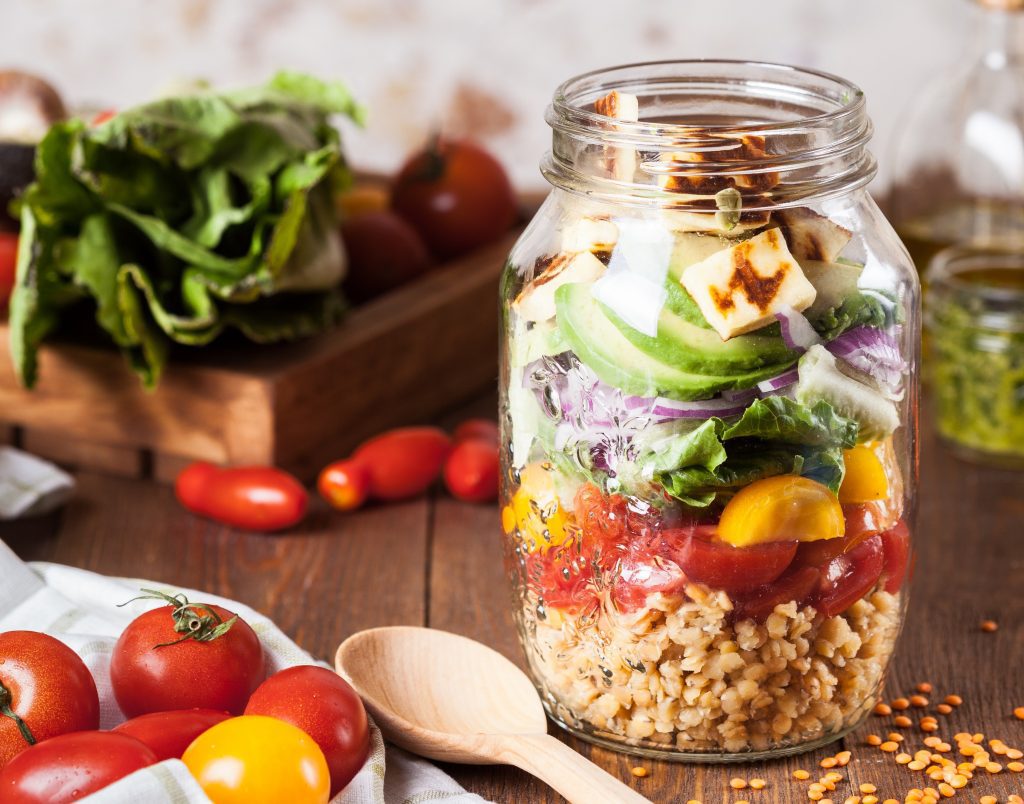
Nutrition for Perimenopause and Menopause
Why Nutritional Therapy should be your plan A.
Let’s talk about nutrition for Perimenopause and Menopause. Let’s not forget that Perimenopause is the period before the Menopause and it can last from 3 to over 10 years for some women. If like me, you don’t want to feel lethargic, brain foggy and or simply like a stress machine, then keep reading. You may find a tip or two worth trying out.
Perimenopause can last over 10 years. Let’s make those years as enjoyable as possible.
Do you experience any of these symptoms?
If you are in your late 30’s or early 40’s, you may have noticed some changes in your body. Some women start experiencing PMS type symptoms they never had before. You could be experiencing one of 100’s of symptoms including:
- Abdominal cramps
- Nausea
- Irritability/anxiety
- Low mood
- Bloating / IBS symptoms (constipation / diarrohea)
- Breast tenderness
- Food cravings
- Brain fog / forgetfulness
- Poor sleep / waking in the night / not being able to fall asleep
Why do women experience PMS discomfort in their 40’s?
Women’s hormones fluctuate throughout the cycle especially oestrogen and progesterone. During Perimenopause, both these hormones can fluctuate more than usual causing PMS type symptoms. It is normal for you to experience some changes in the body but experiencing pain is NOT normal. If you find yourself in a situation where you are reaching out for painkillers every single month, you could be causing damage to your liver and other areas of your body. So let’s explore some of the reasons why you could be experiencing discomfort:
- Nutrient deficiencies
- High stress levels
- Thyroid issues
- Poor digestion causing excess oestrogen to recirculate in the body causing havoc
- High toxicity in the body
- Lack of movement
- Excess sugar, salt and caffeine
To get you started on the journey towards a happy cycle whether you are entering Perimenopause or Menopause (when your cycles have stopped), here are a few things to consider.
5 things that can affect your hormones
Did you know that eating regularly and managing your stress can have a huge impact on hormone balance? The body is one unit where all the various systems are connected. When we connect the dots, we can see how one system can impact another. Here are 5 things to consider when you want to rebalance your hormones.
1. Are you eating enough?
It is so easy to skip lunch when you are busy working or looking after your family. However, if your body doesn’t get the fuel it needs to function, you will start to feel it in your energy levels and hormone balance.
2. Are you sleeping enough?
Lack of sleep can impact on the way we eat. First of all, you may feel very tired to carry out your day to day activities. Then, you are likely to reach for foods that are unlikely to nourish your hormones like biscuits and coffee.
3. Is stress taking over your life?
This is a tricky one, I agree. I can’t remove the stresses in your life but I can help you and your body become more resilient to stress. When we are stronger, we can deal with so much more without it affecting us so much.
4. Are you absorbing the nutrients from your food?
Do you feel bloated after eating foods? If that’s the case, your gut is probably not happy. Your microbiome (the trillions of bacteria in your digestive tract) is there to keep you healthy and balanced. However, if those bacteria are off balance, that in itself can cause all sorts of issues. The digestion does play a role in balancing hormones by breaking down and eliminating excess hormones. So for example, if you experience constipation, your body will keep hold of excess hormones which can then cause issues in the body.
5. Are you a serial snacker?
Do you nibble on food throughout the day? Snacking has its place and when you reach Perimenopause and Menopause you may find that you need to snack clever if you don’t want to start putting on weight.
Eating when we are hungry is totally fine. Eating because we are bored or because we have always eaten a specific snack at a certain time of the day may be an issue.
All of these things will have an impact on your hormone balance. Now, this may feel like a huge task to start tackling these areas. This is where I come in. With Nutritional Therapy, I can help you work out which area to focus on first so you can feel the biggest difference.
Before you do that, I have a great tip for you. There are specific foods which are rich in nutrients known to support the body. When you eat more of these yummy foods, you will hopefully find yourself feeling better and less tempted by the foods that are calorie-dense and nutrient-poor.
Discover the “PERIMENOPAUSE FREEDOM PROGRAMME” to start addressing hormonal symptoms that are affecting your day to day life.
Nutrition for Perimenopause and Menopause – which foods to include on your plate?
1. Leafy greens
Vegetables from the cruciferous family such as kale, broccoli, cauliflower and other green leafy vegetables like spinach, rocket and Swiss chard are known to support the body’s detoxification processes. This is particularly helpful if you experience symptoms of oestrogen dominance such as tender breasts, cramps, bloating etc… This is very common at the start of the Perimenopause.
2. Phytoestrogens rich foods
They are found in legumes such as chickpeas, lentils and beans and also in soy beans (organic), tofu, tempeh, flaxseeds, sesame seeds, berries, oats, barley, rice, alfalfa, apples, pomegranates, carrots, sweet potato,
Phytoestrogens help balance oestrogen levels in the body and this is particularly helpful for perimenopausal women. The recommended amount is 2 portions per week.
3. Wholegrains
These include oat, wild or brown rice, quinoa and buckwheat. If you don’t get affected by gluten, you can also enjoy whole wheat and spelt. Wholegrains contain B vitamins which are essential if you feel tired. They also help curb those carb cravings many women experience just before their period starts.
A satisfying snack could be oat crackers with nut butter and slices of pear.
4. Magnesium-rich foods
Magnesium is an incredible mineral that plays a part in more than 300 functions in the body. If you experience any kind of stress, your body is likely to be deficient in magnesium. So if you want to ease cramps just before your period, why not include some of these magnesium-rich foods: Leafy greens like kale, spinach, and rocket, brown rice, banana, unsalted nuts (to avoid water retention), seeds like pumpkin and flaxseeds, avocado and legumes (chickpeas, lentils and beans). And let’s not forget dark chocolate (with a minimum 70% cocoa).
You could also enjoy a bath with Epsom Salt bath. Ok, this is not a food but your body will absorb the magnesium present in the Epsom Salts and you will feel nicely relaxed.
5. Potassium-rich foods
Feeling bloated and experiencing water retention is very common before periods start. You may be aware that eating salty foods can worsen water retention. To counteract this, one thing to try is to consume potassium-rich foods. The main role of potassium in the body is to help maintain normal levels of fluid inside our cells. Sodium, on the other hand, maintains normal fluid levels outside of cells. Since Potassium and Sodium have opposite effects, it is all about achieving the right balance.
You will find Potassium in the following foods: Dried fruits (apricots), beans, lentils, potatoes, butternut squash, broccoli, avocado, bananas, melon, oranges, tomatoes, natural yogurt, almonds, cashews, chicken and salmon.
Foods that are rich in Sodium that should be avoided include bread, cheese, processed meat, and other processed foods.
6. Healthy fats
These are the building blocks of our hormones. Healthy fats are our friends, we shouldn’t be afraid of them. A little every day can help our body produce healthy hormones.
Healthy fats include walnuts, olive oil, avocado, a small amount of organic butter, and oily fish like salmon, sardines, and mackerel.
7. Probiotic-rich foods
Keeping our digestion flowing nicely is essential to avoid bloating during the cycle. Adding a small amount of sauerkraut, kimchi, or kefir into your diet can give your friendly bacteria a little boost and will help you stay regular. It is important to start slow with probiotics because if you feel bloated when you eat certain foods, this is a sign that your gut is off balance. Adding probiotic-rich foods too quickly could make you feel worse before feeling better.
Do you have questions about the Perimenopause?
Why not sign up for my upcoming webinar called “Chocolate and Mood Swings: 10 things GPs don’t tell you about the Perimenopause”. I will be sharing key facts about the Perimenopause and practical tips so you can feel a little more in control of your body.

What if I’m ready to take action?
If you are ready to take full control, then the Perimenopause Freedom programme is for you. This programme was created to empower you with all the knowledge and tools you need to manage your unique set of symptoms naturally. You will learn so much about your body and what it needs to function optimally now and in the future. This 6-week coaching programme is your first step into a happy Perimenopause and hopefully into a smooth menopause transition.
To find out more about nutrition for perimenopause and menopause and about the programme itself, visit The Perimenopause Freedom Programme – Savoir Fayre Nutrition.
If you are wondering whether this programme is right for you, feel free to book a free chat with me HERE. Alternatively, feel free to join my free Facebook community “Hormone Harmony” for regular tips, yummy recipes, and advice on how to balance hormones naturally.
